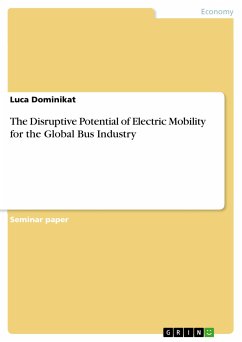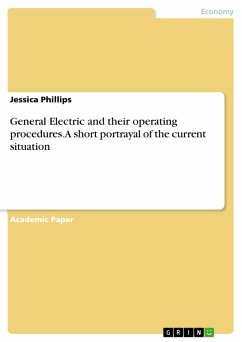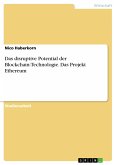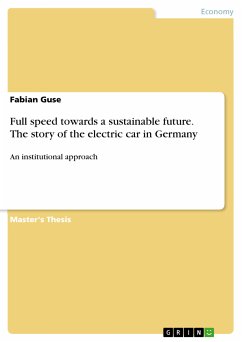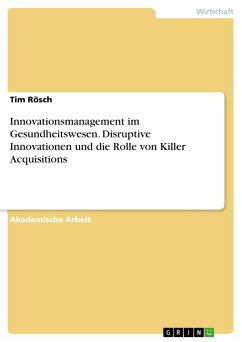Seminar paper from the year 2019 in the subject Business economics - Operations Research, grade: 1.3, Hamburg University of Applied Sciences, language: English, abstract: This term paper examines the different disruptive processes for the global bus industry induced by the electrification of the public bus networks, with respect to the changing status quo of technologies as well as the transforming market compositions. To derive and present these processes, the terms "innovation" and "disruption" were indispensable to define, hence there is no commonly excepted understanding and otherwise there would be no overall principles to evaluate whether electric mobility can be classified as a genuinely disruptive Innovation. Propelled globally by national governments, enforcing their limits of carbon oxide emissions and total number of vehicles, electric buses powered by installed lithium-ion batteries or fuel cells are already operating on some metropolitan streets of mostly Asian, South American and European Countries. Regarding the drawbacks of shorter ranges and longer recharge times, the technical features and operating characteristics of battery-electric buses differ from conventional diesel buses. These differences and their consequences for the global bus industry, gaining additional relevance due to the generally increasing demand of green technologies, should help to get a better understanding of the current shift within the automotive sector while also laying the foundation for potential future trajectories.
Dieser Download kann aus rechtlichen Gründen nur mit Rechnungsadresse in A, B, BG, CY, CZ, D, DK, EW, E, FIN, F, GR, HR, H, IRL, I, LT, L, LR, M, NL, PL, P, R, S, SLO, SK ausgeliefert werden.

